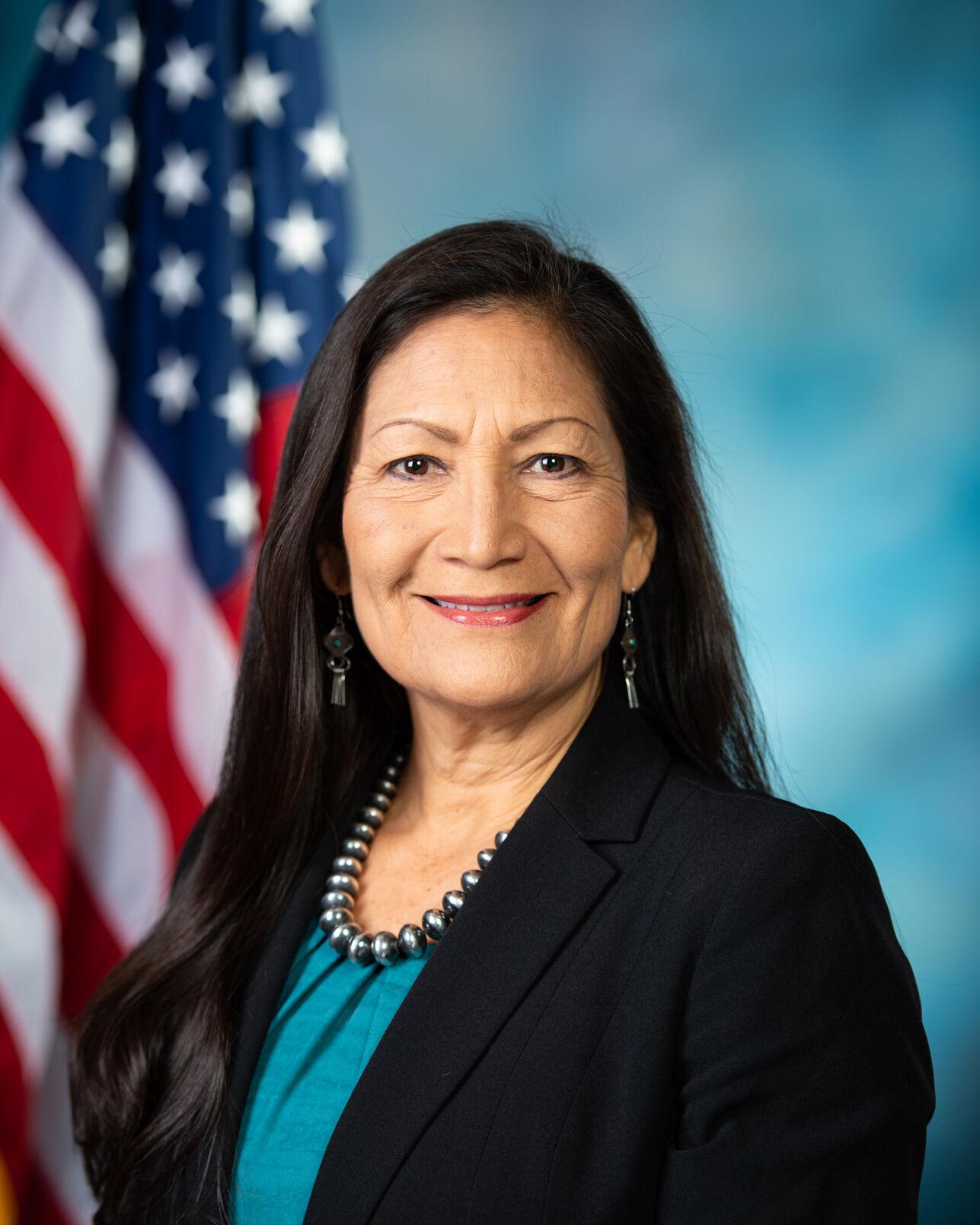Some information may be outdated.
Label: Public Land
Photo: U.S. Interior Secretary Deb Haaland. [File photo]
Since Interior Secretary Deb Haaland’s visit to Southeast Utah in April, where she evaluated the boundaries of Grand Staircase-Escalante and Bears Ears National Monuments, many Indigenous and conservation groups have waited for her recommendation to the president. She submitted the highly anticipated report to the White House on June 2.
Bears Ears National Monument was created in 2016 by then-President Barack Obama, encouraged by the five tribes of the Bears Ears Inter-Tribal Coalition — Diné (Navajo), Hopi, Pueblo of Zuni, Ute Mountain Ute and Ute — which was met with pushback from local elected officials at the state and county level. The monument was originally 1.3 million acres, but President Donald Trump reduced the bounds by 85% in 2017, citing the local concerns that protecting the land inhibited the region’s economic growth. Grand Staircase-Escalante National Monument was designated by President Clinton in 1996 at 1.9 million acres, but Trump cut down its acreage by nearly half in 2017. These reductions allowed for drilling, mining and other extractive practices on the formerly protected land, which has been sacred to several Native American groups for generations.
During his 2020 campaign, President Joe Biden stated his plan to restore both Bears Ears and Grand Staircase-Escalante, which would contribute to his goal of protecting 30% of America’s lands and waters by 2030. He appointed Haaland, a 35th-generation New Mexican and member of the Laguna Pueblo tribe, as Interior Secretary—the first Native American cabinet member in the country’s history.
The Department of the Interior submitted two filings to United States District Judge Tanya Chutkan, the federal judge presiding over the lawsuits that conservation organizations and Indigenous tribes filed to challenge the legality of Trump’s executive orders in 2017, which resulted in the monuments’ shrinkage. These lawsuits were paused after Biden ordered Haaland to review the monuments in 2021, and they could be invalidated if Biden restores the monuments to their original bounds.
The filings submitted on Thursday ask Chutkan to extend the stay on the pending lawsuits. Interior officials indicated that they would submit another status report by July 13, the date that U.S. Department of Justice attorneys requested as the deadline to decide whether the ongoing lawsuits have been rendered moot by presidential action.
“The parties believe that the Court should continue the stay to allow the President to consider the findings and recommendations in [Haaland’s] report,” the Department of the Interior’s filings read. “Continuing the stay and allowing the President to consider, and potentially act on, the report’s findings and recommendations would better situate the parties to answer the questions in the Court’s March 8, 2021, Order concerning whether the current dispute has been or will be mooted or whether the current litigation should continue.”
The Grand and San Juan County commissions have penned letters to Biden supporting the restoration of Bears Ears and Grand Staircase-Escalante National Monuments. However, Republican Governor Spencer Cox announced in April that the state of Utah would “likely” sue the federal government if the restorations took place. Utah’s congressional delegation called for a legislative solution to the monument controversy rather than a presidential executive order.
No further details of Haaland’s recommendation to the president have been released at this time, and the Interior Department spokeswoman has declined requests for comment.
Appreciate the coverage? Help keep local news alive.
Chip in to support the Moab Sun News.





